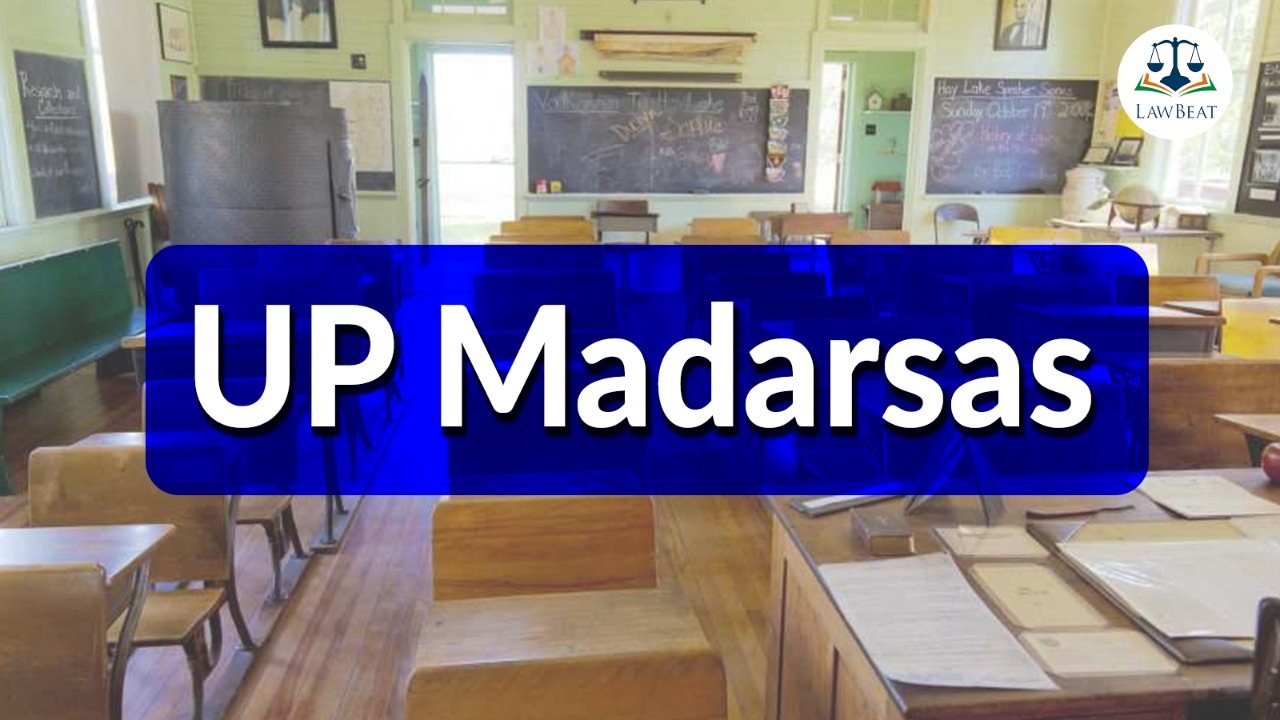Allahabad HC directs UOI, UP Govt, UP Madarsa Board to file specific policies, views on management of Madarsas

Court pointed out that the management of Madarsa impacts a huge number of students in the country and the quality of their education, more so when read with Article 21-A of the Constitution of India
While recently hearing a plea concerning the issue of management of Madarsa, the Allahabad High Court observed that the Union of India, the State Government, and the U.P. Madarsa Education Board failed to provide their clear and specific policies and views concerning the appointment of persons belonging to only a particular religion as the members of the Board.
Court noted that the counter affidavits filed by the respondents i.e. Union of India, the State Government, and the U.P. Madarsa Education Board, were only formal in nature and they did not have the details as asked by the court.
The bench of Justice Vivek Chaudhary and Justice Subhash Vidyarthi noted that by an order dated October 23, 2019, the following questions were referred to a Larger Bench in Writ Petition titled Mohammad Javed Vs. State of U.P. and others:
"(i) Since the Madarsa Board is constituted for education in 'Arbic, Urdu, Parsian, Islamic-studies, Tibb Logic, Philosophy and includes such other branches of learning as may be specified by the Board from time to time', how come persons of a particular religion are provided to be member of the same? It does not talks about exponence in the aforesaid fields, for the purposes of which the Board is constituted, but persons of specific religion. It was put to learned Additional Chief Standing Counsel as to whether the purpose of the Board is to impart religious education only, to which he submits that a perusal of the Madarsa Education Act, 2004 does not indicate so.
(ii) With a secular constitution in India can persons of a particular religion be appointed/nominated in a Board for education purposes or it should be persons belonging to any religion, who are exponent in the fields for the purposes of which the Board is constituted or such persons should be appointed, without any regard to religion, who are exponent in the field for the purposes of which the Board is constituted?
(iii) The Act further provides the Board to function under the Minority Welfare Ministry of State of U.P., hence, a question arises as to whether it is arbitrary for providing the Madarsa education to be run under the Minority Welfare Department while all the other education institutions including those belonging to other minorities communities like Jains, Sikhs, Christians etc being run under the Education Ministry and whether it arbitrarily denies the benefit of experts of education and their policies to the children studying in Madarsa?"
When the hearing commenced in the present plea on Thursday last week, the court was informed that the respondents had filed counter affidavits. However, the court found the replies very formal and lacking specific details.
"The issue with regard to Madarsa Board and the management of Madarsa by Minority Welfare Department, both by Union of India and State Government and other connected issues are under consideration in the present writ petition. The same impacts a huge number of students in the country and the quality of their education, more so when read with Article 21-A of the Constitution of India," the bench said.
Therefore, upon the prayer made by the counsel for Madarsa Board, Union of India, and the State Government for a short adjournment to bring all available material/views of the respective parties along with any policies in vogue on their part, court allowed three weeks' time.
Accordingly, court posted the matter for further hearing on January 8, 2024.
Case Title: Anshuman Singh Rathore v. Union Of India Thru. Secy. Ministry Of Edu. New Delhi And 3 Others
